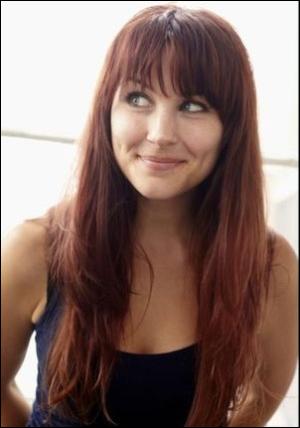The director on his controversy-baiting latest
Lars Von Trier isn’t exactly one to shy away from controversy: the man who made Dogville and The Idiots seems to positively embrace it, in fact. But his latest film, Antichrist, has kicked up a storm that surprised even him since its Cannes debut. We sat down with the Danish director to discuss where he got his ideas, why the film felt like therapy, and what it was like working with a two-person cast of Willem Dafoe and Charlotte Gainsbourg…
So where did the idea for Antichrist come from?
Well, it’s kind of a long story, but it started with this traditional lake in the forest. You know, many people have a painting over their sofa with a deer, and if you asked me where I would feel safest in the world I would say a place like this. This is where I think all of us would feel very safe and good. Then I saw this documentary about the forests of Europe and it stated that a place like this, with the huge, natural diversity, is a place that is dominated by killing and suffering because all these species want to live there.
And I find it interesting, because if you go to a plantation or a park or whatever there is much less struggling because of course some species we like to be there and it’s not at all the same; not like chaos-like nature in its original form. I thought these two things put together were quite interesting.
And what about the idea for the characters themselves and putting them in that forest while they’re struggling with the grief of losing a child?
I always wanted to do a film with only two characters in it, which is kind of a challenge. Then I thought I wanted to do a film about something I really know things about, and that’s anxiety, and then it was typical to kind of put them in a situation where one of them is in therapy.
You’ve said this was a kind of therapy for your own depression. Did you feel that it was a cathartic experience?
I worked everyday on the film; figuring out how you actually do these things that you make a sketch of, now you have to do this, you have to stand up and film work is good for that. Before I was lying in bed looking into the wall and now I’m standing up so…
Did you write during that black period or did you feel that you were artistically switched off?
No, first you switch off, but then I have a lot of therapies that helped me with lots of things, and then the ideas that you find, one or two things during the day, that actually pleases you and then you build up from there and that meant I would write ten pages everyday or something like that.
So how long did it take you to write the script?
One or two months or something.
Was Willlam’s character based on a particular therapist you knew?
No, I’m being quite sarcastic about the therapy in the film and I think that’s very much the way I would react. One of the ideas is that you should stay in the anxiety when you reach there, investigate it, and that is sometimes impossible and really very easy for us to say and very difficult for a patient to do.
How was working with Willam and Charlotte? Were they receptive to your methods or did they take a little bit of coaxing to get them to open up and let go like that?
I must say I’m very thankful to both of them because I was in this not very good state and they really, really helped me. I think I’ve never done any film that, actor-wise, was so smooth. It was a smaller crew. We filmed the film in Germany for financial reasons.
Let me ask you about the talking fox. What was the thinking behind that? It’s quite different to the rest of the film; it sort of feels slightly odd.
Yeah it does, I was not really thinking. All these animals are images from earlier in my life. You do some fantasy travels and then you go to this parallel world where you talk to the animals and that’s why it had to talk. Yes, I’m sorry, I was not really responsible for that.
No, it worked in its own way in the film. Obviously, one of the main things that’s come out of the reactions to the film is the explicit genital mutilation that happens. Why did you feel you wanted to have her grief culminate in that way? Is there a particular reason behind it?
Mutilation? One of the things that happens during this kind of therapy is self-harm, that’s what I’m arguing really, that the fear takes over and really changes reality.
Do you feel that you make controversial films on purpose or do you feel that is just how they come out?
Yeah, I think they come out because that is kind of how I am, but I would say actually what I’m doing with a film like this also is putting myself right. In many films, I have taken on with a point of view that is not my own, and then try to diffuse it, and that’s kind of the technique behind the film.
And what are you working on at the moment?
Absolutely nothing! I have a garden with vegetables, and that’s what I’m working on, new potatoes and lettuce and all kinds of nice things.
Views: 120



